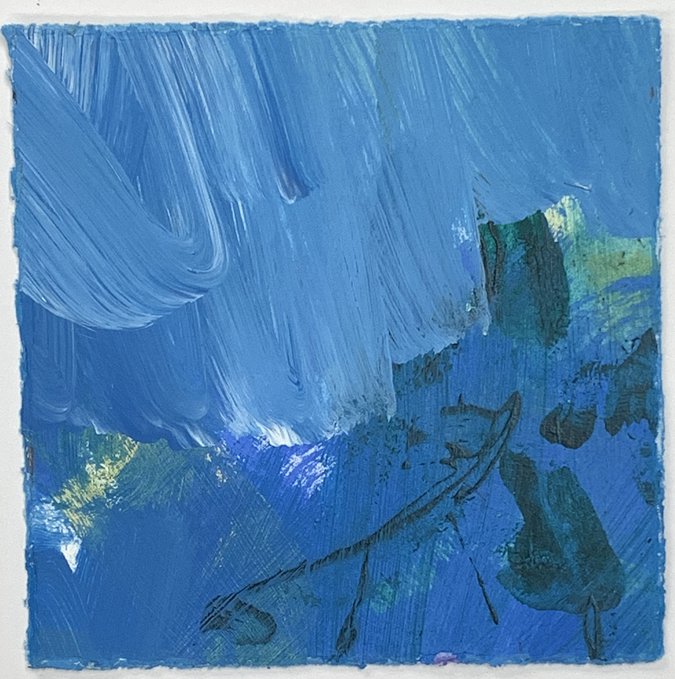 Jean Wilkey
Jean Wilkey
The Lake
by NOURIN OMIDI
Layli took one last look at the cabin. Turning away, she closed the door and zipped her dark green jacket with her thin, trembling fingers. She removed her hair tie and let her gray hair move freely. She remembered with a start: she would be fifty tomorrow. She looked at the pair of well-worn brown leather shoes near the door. They were among the few things left of him. She closed her eyes and remembered their wedding night. People were dancing. Children were playing. The bride kissed the groom. After they had said their vows, everyone had shouted their hurrahs. The newlyweds had hugged each other, and he, the groom, had spun her, the black-eyed bride, cheerfully around the dance floor.
It was autumn now. Layli and Shoghi had always loved the autumn in Bareh Sar. She looked around her. The trees in the woods had turned orange and yellow, with the tallest branches completely bare. As she walked, she heard bluebirds singing. A cold wind blew, so she tucked her hands in her pockets. There it was, in her right-hand pocket, the necklace her beloved Shoghi had bought her on their tenth anniversary. They had celebrated quietly with a walk along a bridge in Tehran on the very night she had told him she was pregnant. She smiled softly and continued walking.
She passed through the trees until she reached the lake. Over the years, Vistan Lake had so faithfully comforted her in her sorrow. She sat down to rest on a big moss-covered stone. She slouched forward, laying her head against her knees. Then she sat up and rolled up her right sleeve. There it was: the tattoo she had gotten of the painting her four-year-old son had given her as a birthday gift, a painting of a happy family. She so treasured it that she had had it tattooed on her right arm. As she kissed her arm, a tear fell on the smallest figure pictured in the tattoo.
Layli stood up and started walking toward the water. These are stagnant waters, she thought. The lake was covered with fallen leaves and, in places, moss floated on its surface. As she looked out over the water, Layli remembered the last trip her family had taken to the cabin. She was expecting a new baby, in her third month. She had come to the cabin early to prepare for the celebration she and her husband were planning to mark their announcement of the good news that they would soon welcome a new life into the world. Shoghi was to join her the next day.
The next day passed and Shoghi did not come. Layli waited through the night. Where was he? There was no reception in the woods, so she could not call him or anyone else to find out. When, at last, she heard a knock on the door, she ran to it, relieved and ready to hug her beloved husband. But when she opened it, she saw not Shoghi, but weeping relatives. Her husband had been arrested, they told her, taken to jail. The secret police had searched the house for Bahá’í books and ransacked it for evidence in order to prove that the family were “enemies of the state.” Shoghi’s imprisonment had lasted only nine months, and, then, without cause or any kind of justification, he had been executed.
So many years ago. . . . Her children had grown up and now had families of their own, but the dreadful loneliness had still not ebbed. Layli’s eyes caught the glimmer of light on the lake. Drawn to it, she climbed into the little wooden row boat she and Shoghi had so often taken out on summer afternoons, to row and drift the whole afternoon on the crystal waters. She pushed out from the shore, closed her eyes, and began to row. She rowed and rowed until she could row no more. It was growing dark. Still, she rowed and drifted, on and on — she did not know where — perhaps to the end that had no end, where she would meet, once again, her beloved.

